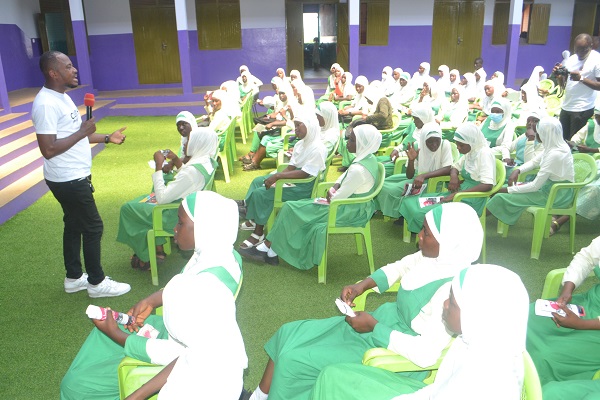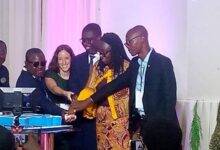
Over100 girls drawn from eight different Islamic Basic Schools within four districts in the Greater Accra Region yesterday received education on menstrual hygiene and reproductive health.
The schools were Al-Waleed Comprehensive Basic, Islamic Training Institute, TafsiliyahIslamic Basic, Qubbatul Islamic Primary and Institute of Islamic Studies Primary and junior high school (JHS) in the Ayawaso East District.
The other three schools are Darul-Hijra Islamic Basic in the Ayawaso North, Rashad Islamic Basic in the Ayawaso Centraland Khairiyah Islamic Basic in the KorleKlottey District.
The Managing Director of Changing Lives Through Health (CLITH), a non-governmental organisation (NGO), Mr Eugene Elikem Tornyeavah through an interaction with the girls, educated them onbest personal hygiene practices such as the use of clean water in washing their private part.
Additionally, Mr Tornyeavah educated the girls on how to wear and properly dispose of used sanitary pads,as he made a few of them demonstrate it.
The girls were also allowed to ask questions on menstrual hygiene and reproductive health that bothered the mind and needed answers.
Sanitary pads were also distributed to the girls at the end of the interaction as way of addressing the issue of the affordability of sanitary pads for young girls.
Speaking to the Ghanaian Times, he explained,the engagement with the girls formed part of CLITH collaboration with the Rebecca Agroh Memorial Foundation to educate young girls on menstrual hygiene and reproductive health.
Mr Tornyeavah said the engagement with the girls was aimed at breaking the “myth and perception” people had about menstrual hygiene and reproductive health, especially, the Islamic community.
“We keep breaking the myth around menstruation. You realise that this programme has been done in an Islamic school. Generally, this is not something we think is open to the religion Islam, because they don’t talk much about it, but today shows that the reception to this information is not bad,” Mr Tornyeavah said.
He further advocated the removal of taxes on sanitary pads, because it was essential as “it was not any woman’s wish to be spending money on pads every month.”
Mr Tornyeavah encouraged the girls to take their education seriously, as they had the potentials of becoming great personalities in future.
For his part, the Acting Executive Director of Rebecca Agroh Memorial Foundation, Mrs FaustinaSelanyoHukportia, noted that her organisation took keen interest in women empowerment, and the education of young girls on women’s reproductive health.
The Guidance and Counselling Coordinator who doubles as the Girl Child Officer of the Greater Accra Islamic Education Unit, Annatu Adam Iddriss, noted that the programme was important as it would make the girls assertive.
She also expressed concern over the affordability of sanitary pads for young girls, which had been a topic for discussion for the past few months, and therefore, appealed to the government to help address the issue by taking off taxes on sanitary pads.
BY BENJAMIN ARCTON-TETTEY & SONNY SEYRAM QUARTEY







